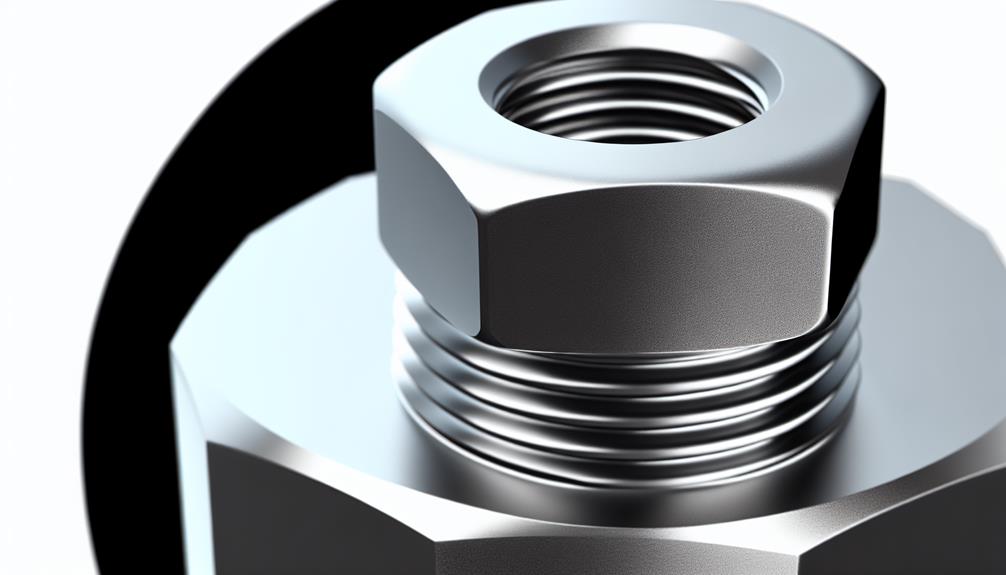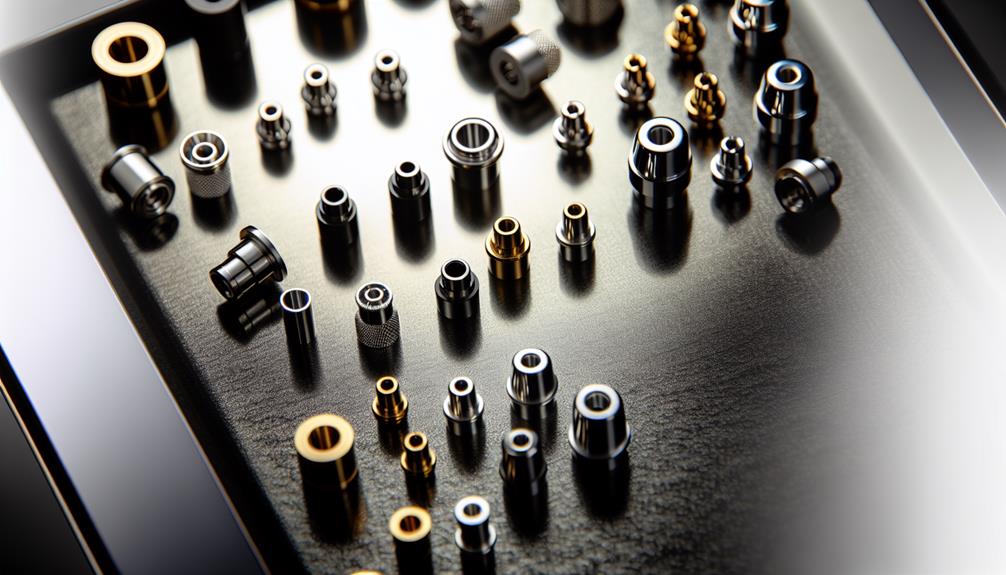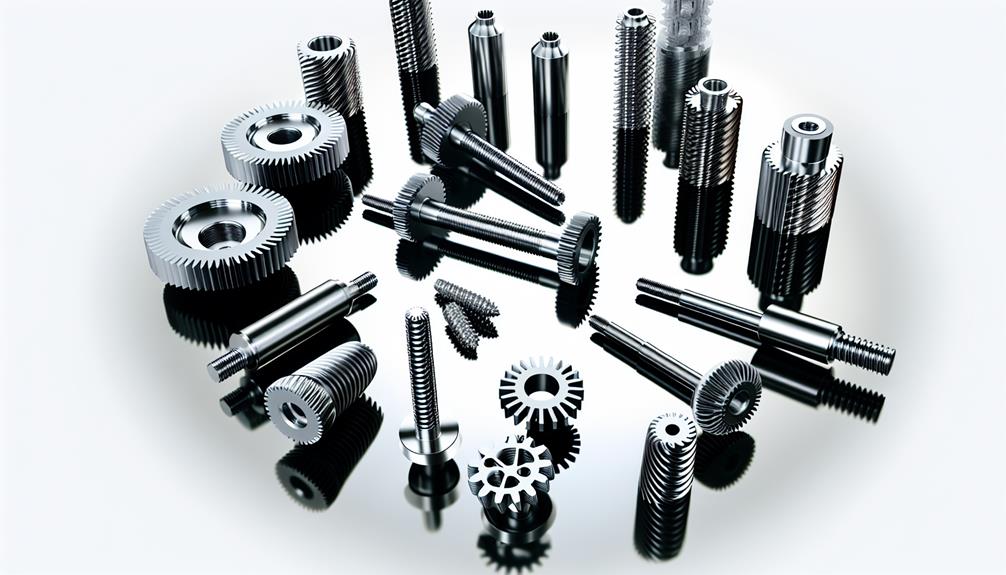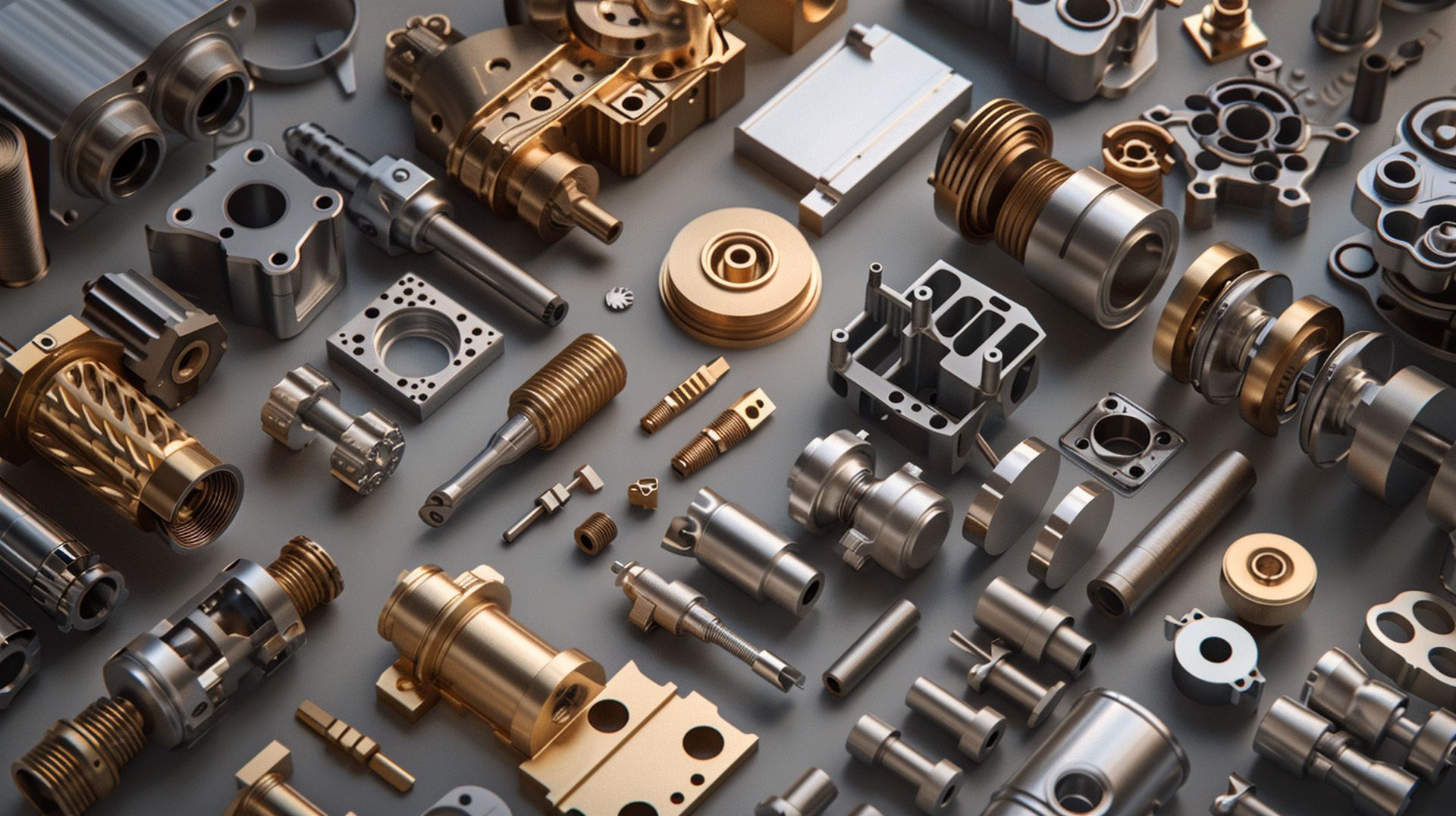Flat Socket Head Screws: Key Considerations for Custom Manufacturing
In the realm of custom manufacturing, the intricacies of fasteners hold a pivotal role in ensuring the seamless functionality and structural integrity of various products.
When it comes to flat socket head screws, a seemingly ordinary component, there exist critical considerations that can significantly impact the overall efficacy of a design. From material selection to precise measurements, each aspect plays a crucial part in the successful fabrication of these seemingly straightforward yet indispensable fasteners.
Let's explore the nuanced world of flat socket head screws and uncover the key considerations that elevate them from mere components to essential elements in custom manufacturing processes.
Key Takeaways
- Customization options play a crucial role in meeting specific project requirements.
- Material choice significantly influences the performance and longevity of flat socket head screws.
- Thread coverage is essential for secure fastening and preventing stripping or failure.
- Consideration of factors like diameter, corrosion resistance, and installation method is vital for successful customization in industrial applications.
1. What is a flat socket head screw?

A flat socket head screw is a type of fastener commonly used in applications where a flush surface is desired for a streamlined appearance and improved safety. This type of screw falls under the socket head types category, characterized by a recessed driving area shaped to fit a specific tool for installation. The screw head design features a flat top with a hexagonal socket drive, allowing for efficient torque transmission during tightening. Socket drive styles vary, with hex drivers being the most common choice for flat socket head screws due to their widespread availability and ease of use.
When it comes to installation techniques, flat socket head screws require a compatible hex key or driver to ensure proper tightening and secure fastening. The flat head of these screws offers benefits such as a low-profile finish, reducing the risk of snagging on surrounding objects or clothing. This design choice enhances safety and aesthetics in various applications where a sleek, flush surface is desired.
Related Article: Crafting Flat Head Hexagon Socket Head Screws
What is a socket head screw?
Socket head screws, like flat socket head screws, are a type of fastener designed with a recessed driving area for efficient installation using a specific tool. These screws offer several advantages over other fasteners, making them popular in various applications:
- Socket Head Screw Advantages:
- Provide a clean and sleek appearance when installed flush with the surface.
- Offer high torque capabilities due to their internal socket drive.
- Resist stripping better than traditional screws, ensuring secure fastening.
- Socket Head Screw Sizes:
- Available in a wide range of sizes to accommodate different project requirements.
- Common sizes include metric and standard measurements, catering to diverse needs.
- Socket Head Screw Materials:
- Manufactured in various materials such as stainless steel, alloy steel, and titanium for strength and corrosion resistance.
- Material selection depends on the application's environmental conditions and load-bearing requirements.
Socket head screws find applications in industries like aerospace, automotive, and machinery where precision and strength are crucial. When installing socket head screws, ensure to use the correct size and type of hex key to prevent damage to the screw head and achieve proper torque for secure fastening.
2. Features of flat socket head screw
What distinguishes flat socket head screws from other fasteners in terms of their design and functionality? Flat socket head screws offer unique features that make them a popular choice in various industries. Firstly, the installation advantages of these screws lie in their ability to sit flush with the surface when tightened, providing a sleek and professional finish. Secondly, their torque resistance ensures secure fastening without the risk of stripping, making them reliable for demanding applications. Additionally, the countersinking benefits of flat socket head screws allow for a smooth surface after installation, reducing the need for additional finishing. Durability factors play a crucial role, as these screws are often made from high-quality materials, ensuring longevity and resistance to corrosion. Moreover, customization options such as material selection, coatings, and sizes provide versatility to suit specific project requirements.
| Features | Benefits |
|---|---|
| Installation advantages | Flush surface finish |
| Torque resistance | Secure fastening |
| Countersinking benefits | Smooth surface post-install |
| Durability factors | Longevity and corrosion resistance |
3. What is the difference between pan head and flat head screws?
When comparing pan head screws and flat head screws, it is essential to note their distinct differences in design and functionality.
- Head Thickness: Pan head screws have a rounded, protruding head while flat head screws have a head that sits flush with the surface, providing a sleek appearance. The difference in head thickness can impact the overall aesthetics and functionality of the application.
- Installation Process: Flat head screws are designed to be countersunk into the material, requiring a specific recess to be created for a flush finish. On the other hand, pan head screws are surface-mounted and do not need any special preparation, making them easier to install in certain situations.
- Torque Requirements: Due to their design, flat head screws may offer better torque transmission capabilities compared to pan head screws. The flush fit of flat head screws allows for more efficient torque transfer, potentially making them suitable for applications requiring higher torque values.
These factors highlight the importance of selecting the right screw type based on head thickness, installation process, and torque requirements to ensure optimal load distribution and compatibility with washers when choosing between pan head and flat head screws.
4. Key Considerations of custom flat socket head screw
When customizing flat socket head screws, several key considerations come into play. These include:
- Selecting from featured brands
- Determining the appropriate surface treatment
- Choosing the right exterior finish
- Deciding on the material composition
- Ensuring optimal thread coverage
Each of these factors plays a crucial role in the overall performance and durability of the custom flat socket head screws.
Featured Brands
Among the key considerations for custom flat socket head screws, understanding the distinct features offered by various brands is essential in ensuring optimal performance and compatibility with specific applications.
When evaluating different brands, consider the following:
- Brand comparison: Compare the reputation and reliability of different brands in the market.
- Quality standards: Assess the quality certifications and standards adhered to by each brand.
- Customization options: Look for brands that offer a wide range of customization options to meet specific requirements.
Surface Treatment
Considering the importance of selecting reputable brands with quality standards and customization options for custom flat socket head screws, a critical aspect to address is the surface treatment of these specialized fasteners. Surface treatment plays a vital role in enhancing the overall performance and longevity of flat socket head screws. Key considerations include corrosion resistance, various coating options such as zinc plating or black oxide, durability factors to withstand harsh environments, achieving desired surface finish for aesthetics and functionality, and the extensive customization possibilities available.
Manufacturers offer a range of surface treatments to meet specific requirements, ensuring that the custom flat socket head screws maintain their integrity and functionality in diverse applications. Selecting the appropriate surface treatment is essential in ensuring the reliability and effectiveness of these specialized fasteners.
Exterior Finish
An essential aspect to address when customizing flat socket head screws is the careful consideration of the exterior finish, which plays a crucial role in both the aesthetic appeal and functional performance of these specialized fasteners.
When focusing on the exterior finish of flat socket head screws, several key considerations come into play:
- Exterior durability: Ensuring that the finish can withstand external elements and maintain its appearance over time.
- Weather resistance: Selecting finishes that are resistant to corrosion, rust, and other weather-related damage.
- Custom finishes: Offering a variety of finishes to suit different aesthetic preferences and application requirements.
Considering these factors is vital, especially for outdoor applications that demand high durability and protective coatings.
Material
When customizing flat socket head screws, the selection of material is a critical consideration that significantly influences the performance and longevity of these specialized fasteners. Material selection is vital to meet specific strength requirements based on the application's demands.
Additionally, considering corrosion resistance is crucial to ensure the screws can withstand environmental factors. Customization options in terms of material allow for tailoring the screws to the exact needs of the project, such as choosing between stainless steel, aluminum, or titanium.
However, it is essential to balance these choices with cost considerations to optimize the manufacturing process and overall expenses. Prioritizing the right material for flat socket head screws is fundamental in achieving high-quality and durable fastening solutions.
Thread Coverage
Determining the optimal thread coverage is a crucial factor in customizing flat socket head screws for specific applications. When considering thread coverage, several key aspects must be taken into account to ensure the screw performs as intended:
- Thread engagement: The length of the threaded portion should provide adequate engagement with the mating material for secure fastening.
- Torque requirements: Proper thread coverage affects the amount of torque that can be applied without risking thread stripping or failure.
- Installation tools: The length of the threaded section impacts the type of tools required for installation, influencing the ease and efficiency of the process.
Application and For Use In
Customizing flat socket head screws for specific applications requires careful consideration of the intended usage and environment they will be used in. When evaluating customization options, industrial applications play a vital role in determining the appropriate material, size, and coating for the screws.
Understanding the strengths and weaknesses of different customization choices is crucial to ensuring optimal performance in specialized manufacturing settings. Manufacturers must prioritize design flexibility to meet the unique requirements of various industries. By offering tailored solutions, such as different head styles, thread lengths, and materials, specialized manufacturing processes can benefit significantly from custom flat socket head screws.
Diameter
In customizing flat socket head screws for specific industrial applications, one key consideration that significantly impacts their performance is the diameter of the screw. The diameter of the screw influences various factors such as head style, thread pitch, corrosion resistance, strength requirements, and installation method.
When determining the diameter of a flat socket head screw, it is crucial to align it with the strength requirements of the application to ensure optimal performance. Additionally, considering the installation method and the need for corrosion resistance will help in selecting the appropriate diameter for the screw.
Thus, carefully evaluating these aspects will lead to the successful customization of flat socket head screws for specific industrial needs.
Length
When selecting the appropriate length for custom flat socket head screws, it is imperative to consider the specific requirements of the industrial application to ensure optimal functionality and performance. Factors such as head design, fastening applications, custom lengths, thread types, and torque requirements play a crucial role in determining the ideal screw length. Different industrial settings demand varying lengths to accommodate specific material thicknesses and fastening depths. To assist in visualizing the importance of screw length in different scenarios, below is a table outlining the considerations based on the key factors mentioned above.
Frequently Asked Questions
Can Flat Socket Head Screws Be Used in Place of Socket Head Screws?
In the intricate symphony of fasteners, the choice between flat socket head screws and socket head screws can impact installation techniques, compatibility concerns, torque requirements, cost considerations, and aesthetic appeal. Each element warrants meticulous evaluation.
How Do Flat Socket Head Screws Compare to Other Types of Screws in Terms of Strength and Durability?
Flat socket head screws offer exceptional strength and durability compared to other screw types due to their superior corrosion resistance, high load-bearing capacity, wide temperature tolerance, ease of installation, and sleek aesthetic appeal.
Are There Any Specific Applications Where Flat Socket Head Screws Are Preferred Over Other Types of Screws?
In industrial applications, aerospace, automotive, precision engineering, and defense projects, flat socket head screws are preferred for their streamlined design and enhanced security. Like a skilled artisan, they provide meticulous fastening solutions in critical environments.
What Are the Advantages of Using Custom Manufactured Flat Socket Head Screws Compared to Standard Off-The-Shelf Options?
Custom manufactured flat socket head screws offer advantages over standard options through custom finishes, unique designs, precision machining, specialized materials, and tailored solutions. These features cater to specific needs, ensuring precise control and optimal performance.
How Does the Material Used in Custom Manufacturing Affect the Performance of Flat Socket Head Screws?
Selecting the right material for custom manufacturing of flat socket head screws is crucial. Material choice directly impacts corrosion resistance, temperature tolerance, surface finish, and mechanical properties. Optimal material selection ensures high-performance and durability in diverse applications.
Conclusion
In conclusion, when considering custom manufacturing of flat socket head screws, it is important to take into account factors such as:
- Material
- Size
- Thread type
- Coating options
By understanding the unique features and benefits of flat socket head screws, manufacturers can ensure optimal performance and reliability in their applications.
Remember, attention to detail and precision in customization can lead to the creation of high-quality and efficient fastening solutions.




